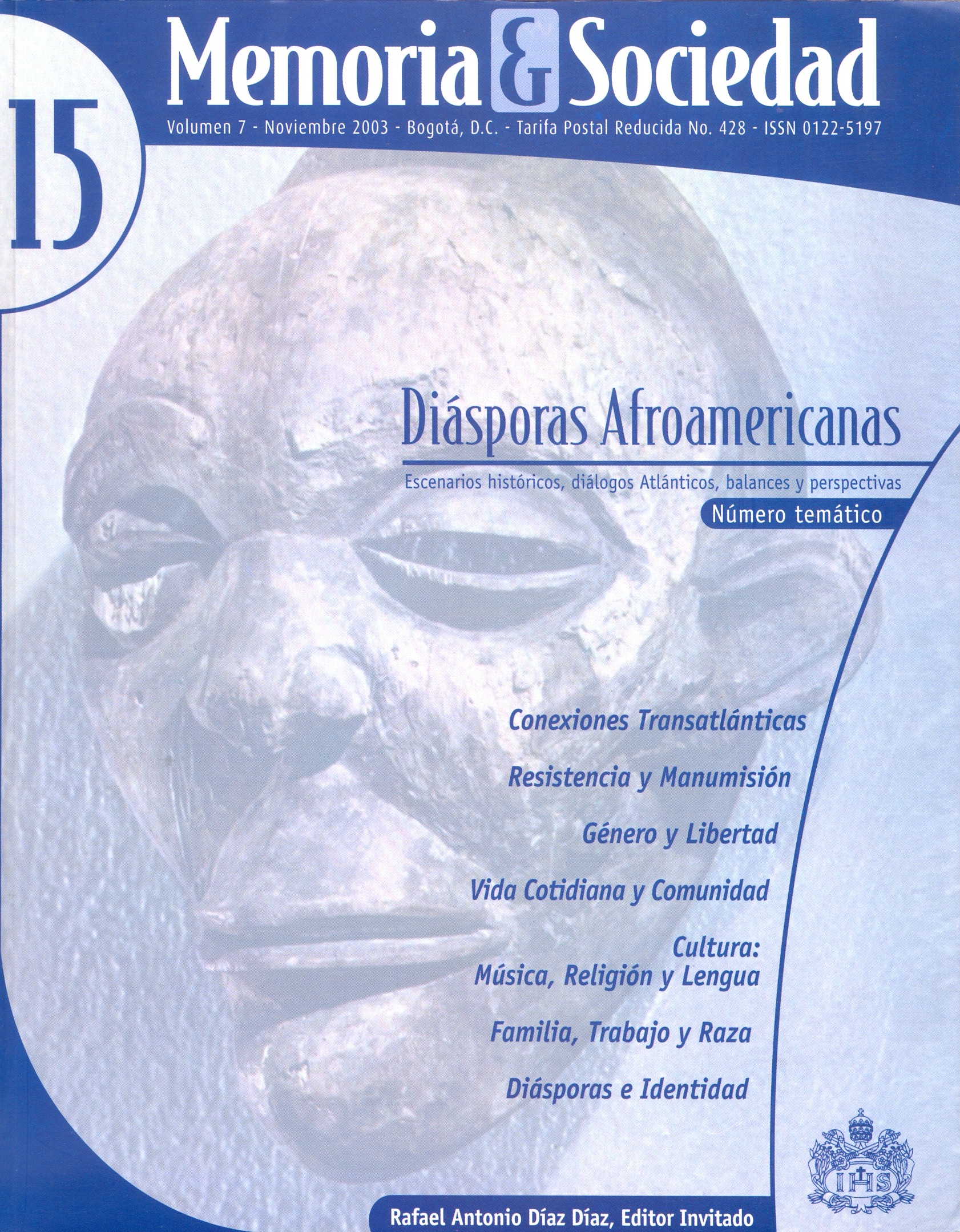Abstract
Witches who steal your soul by embracing you, councils of blacks and mulattos, secret dances, dances of blacks during religious festivals and games of all type, prohibited drums, demons of resistance, communities of runaway slaves, parties of mulattos, mulattos dressed up as women, singing instruments-these are some of the most important cultural manifestations of the black and mulatto population in the Kingdom of New Granada. However, they share with other social sectors (Native Americans, Spaniards and mestizos) their own processes of constructing a wide array of colonial cultures, shaded by regional spaces and their own historic, social and demographic dynamic. This article, then, takes as its primary axis of investigation an analysis of the make-up of that which, provisionally, I will call black and mulatto culture. To achieve this, the research will be shaped by theory of colonial culture. Later, I will focus on the field of the transatlantic stages as a fluid scene of the African Diaspora, and I will attempt to recuperate the African dimension of this Diaspora.The journal Memoria y Sociedad is registered under a Creative Commons Attribution 4.0 International Public License. Thus, this work may be reproduced, distributed, and publicly shared in digital format, as long as the names of the authors and Pontificia Universidad Javeriana are acknowledged. Others are allowed to quote, adapt, transform, auto-archive, republish, and create based on this material, for any purpose (even commercial ones), provided the authorship is duly acknowledged, a link to the original work is provided, and it is specified if changes have been made. Pontificia Universidad Javeriana does not hold the rights of published works and the authors are solely responsible for the contents of their works; they keep the moral, intellectual, privacy, and publicity rights.
Approving the intervention of the work (review, copy-editing, translation, layout) and the following outreach, are granted through an use license and not through an assignment of rights. This means the journal and Pontificia Universidad Javeriana cannot be held responsible for any ethical malpractice by the authors. As a consequence of the protection granted by the use license, the journal is not required to publish recantations or modify information already published, unless the errata stems from the editorial management process. Publishing contents in this journal does not generate royalties for contributors.

